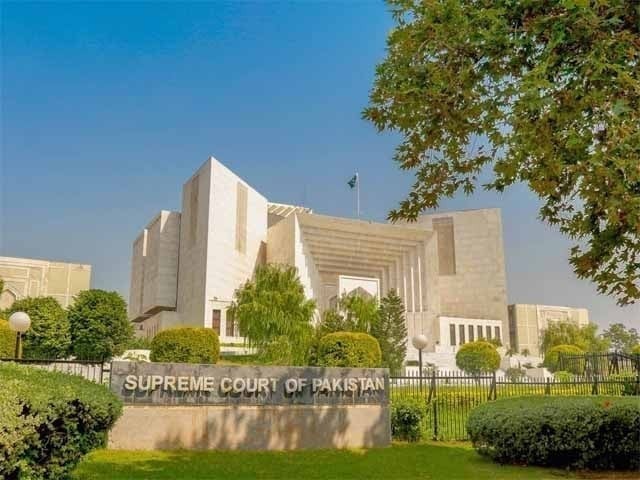Staff Report
ISLAMABAD: Justice Jamal Mandokhail of the Supreme Court’s constitutional bench questioned the Federal Board of Revenue (FBR) lawyer during the super tax case, asking, “Can you impose a super tax without legislation?”
A five-member constitutional bench, headed by Justice Aminuddin Khan, conducted the hearing. Justice Jamal Khan Mandokhail inquired whether the tax was imposed under Article 173 or not.
FBR’s lawyer, Raza Rabbani, responded that the entire taxation process is clearly outlined in Article 173. The Standing Committee on Finance first finalises the budget, then sends it to the Upper House for approval.
Rabbani added that “4B” is not meant for local purposes; it pertains to local bodies. He explained that the super tax would be used for the repair of damaged houses, with no specific area mentioned. He further said that super tax and income tax are two different things — the super tax is imposed for a specific purpose.
Justice Jamal Mandokhail remarked, “How is the amount collected through the super tax distributed? Can you impose it without legislation?”
Raza Rabbani replied that legislation had been made regarding the super tax, and all the revenue from it goes into the federal consolidated budget.
Justice Mandokhail noted that the use of the federal consolidated budget is explained under Article 175.
In response, the FBR lawyer said that the preamble of the 2016 law regarding super tax states that the funds will first be deposited into the federal consolidated budget. The court then adjourned the hearing of the super tax case until tomorrow, with Raza Rabbani scheduled to continue his arguments.
Earlier, The Supreme Court’s constitutional bench is set to hear petitions against Sections 4B and 4C of the Income Tax Ordinance (ITO), 2001, concerning the Super Tax, on Monday (today).
A five-member bench, led by Justice Aminuddin Khan, will also address the impleadment application filed by the Peshawar High Court (Mingora Bench) Bar Association, challenging the 25th Constitutional Amendment as ultra vires.
Over 400 petitions have been filed against the amendments to the Income Tax Ordinance, which introduced the Super Tax to finance the rehabilitation of temporarily displaced persons (TDPs) following the military operation Zarb-e-Azb in North Waziristan.
The tax, imposed through the Finance Act 2015, affects individuals, associations, and companies with an income exceeding Rs500 million, levying 4% on banking companies and 3% on others.
Ijaz Ahmed Awan, representing several taxpayers, argues that the funds for TDP rehabilitation should fall under the provincial domain as per the 18th Amendment, and claims the Super Tax is unconstitutional and lacks the characteristics of a legitimate tax.
He also asserts that the tax was imposed through an improper process, bypassing the standard procedures required for such levies, and violates constitutional provisions, particularly Article 25, on equal treatment under the law.
Awan has requested the Court to set aside the Lahore High Court’s decision on the matter.



